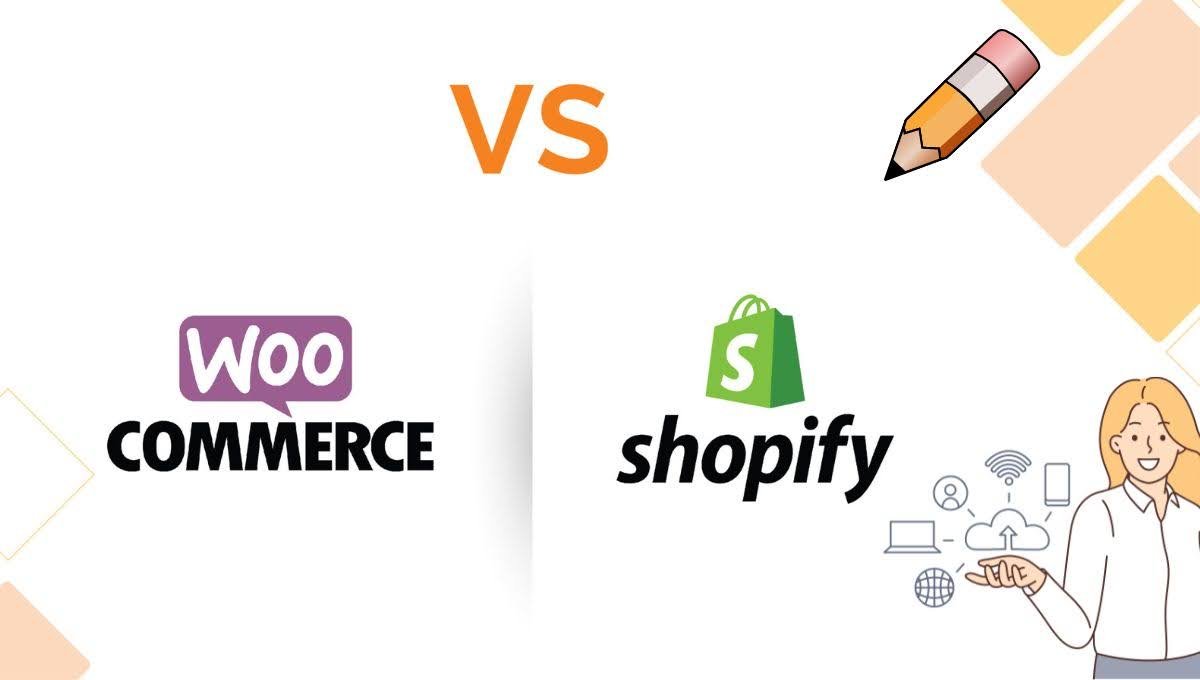As e-commerce gains even greater popularity, the server you choose to power your online store is of utmost importance. Now, there are a variety of e-commerce solutions available, two of the best of which are WooCommerce and Shopify. Each provides robust options for creating and managing online stores. They differ, however, in features, versatility, and ease of use. This comprehensive guide will examine the advantages and disadvantages of the two market leaders in e-commerce platforms, WooCommerce and Shopify, to help you decide which one best suits your varied needs.
What is WooCommerce?
WooCommerce is an open-source e-commerce plugin designed for use with WordPress, one of the internet’s leading content management systems (CMS). Developed by Automattic, the company behind WordPress.com, WooCommerce allows businesses of all types to build and manage online stores right inside their WordPress websites without any monthly fees or transaction costs.
Launched in 2011, WooCommerce quickly became popular–thanks to its seamless integration with WordPress, comprehensive features, and adaptability. This allows users to turn their WordPress websites into fully functional e-commerce platforms by enabling them to sell physical or digital products, manage inventory and orders, collect payments online, and much more. From the beginning, every theme in our collection has been designed to work with WooCommerce and is released with complimentary styling for Shop, Product, and Cart (to name a few!).
What is Shopify?
Shopify is an all-in-one e-commerce platform for businesses that want to sell online and offline. With Shopify, users can easily create their stores using customizable templates and manage products and orders. Furthermore, they can sell across multiple channels, including social media and marketplaces like eBay, all under a single tab on their Shopify Dashboard, as well as removing any need for extensive technical knowledge or coding expertise through their user-friendly interface and intuitive design. In addition, all of their Shopify Payments, Shopify POS, and similar services are designed to streamline your operations and provide a seamless shopping experience for your users.
Key Features of WooCommerce
- Product Management: With the easy-to-use product management system, you can not only modify and manage your products, but you can additionally add composite products, virtual products, and downloadable articles. Group your goods into categories and tags, and define attributes to help users search and search more smoothly.
- Payment Processing: We Support several different ways for efficiently processing payments, such as PayPal, Stripe, Square or similar services. We securely handle money in multiple currencies, accepting major credit cards worldwide and direct bank transfers domestically, plus digital wallets as well if needed!
- Shipping Options: Set flexible shipping costs based on weight, location, or class. Offer free, flat rate, or real-time rates from major carriers such as UPS, FedEx, USPS, or FedEx.
- Order Management: View, track, and manage all your orders from one place on your WordPress site! Monitor the status of orders at any time; update their statuses if necessary and generate packing slips and invoices–then immediately communicate with customers throughout this process by email using our system or manually over the phone (where applicable).
- Extensions and Integrations: Broaden WooCommerce’s functionality with our huge range of plugins and integration tools. You’ll find thousands naturally occurring in one place–from payment gateways to shipping solutions, marketing tools, or more choices on how you want to run your online store!
- SEO and marketing tools: To help you get high search engine rankings and drive sales, WooCommerce offers essentials for advanced search engine optimization as well as basic WordPress blogging features such as easy-to-use permalinks and site maps. In addition, the site comes with built-in marketing features such as discount codes, product reviews, email marketing, and tools to recover abandoned shopping carts.
Key Features of Shopify
- Easy Setup and Management: Getting started with Shopify is easy. You can set up an online store in no time and begin selling products right away. The administrative tools are intuitive, and the pages themselves are elegant in their design. Orders, products, and customers alike are easily visible and manageable without needing extensive training or skills as a professional webmaster.
- Secure Hosting and Reliability: Shopify offers online store hosting, with measures designed to make your websites safe from hacking attempts; its reliable hosting infrastructure benefits businesses everywhere who want a peace of mind knowing their e-commerce side can operate without spending time on technical matters.
- Built-in Payment Processing: Shopify provides an integrated system for payment processing that allows businesses to accept credit card payments on their online stores. With support for multiple payment gateways, including Shopify Payments, PayPal, Stripe, and many more, businesses can offer customers a variety of ways to pay and streamline the checkout process.
- Order Processing and Fulfillment: Using Shopify tools, which make it a breeze for businesses to manage orders from and track shipments within a dashboard at one location.
- Marketing and SEO Tools: Shopify is equipped with a variety of marketing and SEO tools to help businesses attract customers as well as generate sales. These facilities make it possible for businesses to extend the reach of their online stores, communicate with consumers more effectively and so forth.
- 24/7 Customer Support: With features such as 24/7 customer support via phone, email, and live chat, Shopify ensures that businesses have access to assistance when they need it. Whether you have questions about setting up your store, managing orders, or troubleshooting technical issues, the Shopify support team is there for you.
Factors to Consider When Choosing Between WooCommerce and Shopify
- Technical Knowledge: WooCommerce may require technical knowledge to set up and customize, particularly for users managing their own hosting and domain. Shopify, on the contrary, is designed to be user-friendly and requires minimal technical knowledge.
- Cost: Though WooCommerce itself is free, users will need to budget for web hosting, domain registration, and any premium themes or plugins they select. On the other hand, Shopify offers tiered pricing plans that include hosting and other features in the package, making it easier to calculate your expenses.
- Scalability: WooCommerce and Shopify are both scalable platforms for business growth. Yet WooCommerce may require more technical knowledge to add new features or functions.
- Ownership and Control: With WooCommerce, users have complete ownership and control over their online stores and can customize them as they see fit. By comparison, Shopify is a hosted solution, meaning users travel along the company’s features and customization options.
Conclusion
WooCommerce and Shopify both provide solid solutions for constructing and managing online stores. Each has its particular features, advantages, and considerations. The choice between the two is ultimately a matter of your needs, preferences, and resources. WooCommerce is particularly suitable for WordPress companies that want full control and customization options. On the other hand, Shopify offers a one-stop solution with easy-to-use features and dependable hosting. This is the optimal choice for businesses looking for simplicity and scalability. Whether you choose WooCommerce or Shopify, partnering with a Shopify web development agency can provide valuable expertise and support to ensure the success of your e-commerce venture.

